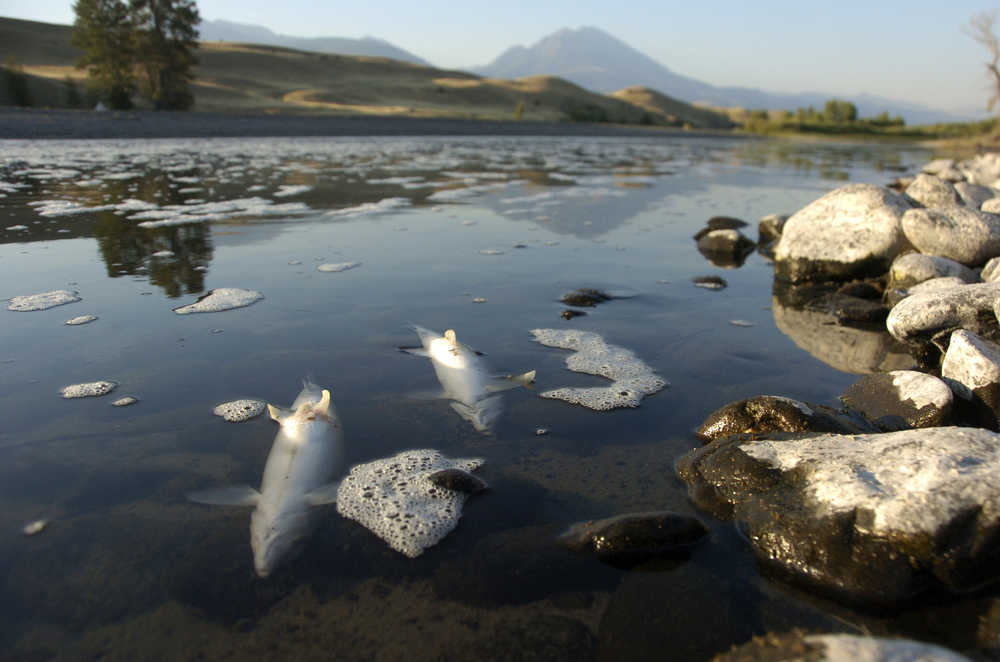BILLINGS, Mont. — Wildlife workers will conduct tests on fish from additional areas of Montana to determine the extent of a disease blamed in a massive fish kill along the Yellowstone River, officials said Monday.
The state indefinitely closed a 183-mile stretch of the river to all recreational activities on Friday after thousands of dead fish washed up along the river’s banks in the Paradise Valley area north of Yellowstone National Park.
Biologists are trying to determine if the little-understood parasite that’s blamed for the deaths has infected fish further downstream and in several major tributaries. Those tributaries also were closed under the order from Montana Fish, Wildlife and Parks.
Crews will be collecting fish throughout the week on the Yellowstone downstream of Springdale and on three tributaries — the Shields, Boulder and Stillwater rivers, said Fish, Wildlife and Parks spokeswoman Andrea Jones.
Results of laboratory tests are expected within a few days of collection. The parasite at issue causes infected fish to develop proliferative kidney disease. Warm water temperatures and low river levels have worsened the problem by stressing the Yellowstone’s fish populations and making them more prone to dying.
The river’s closure during the busy summer season dealt a major blow to fishing guides, fly shops, rafting companies and others who work in the region’s thriving outdoors industry.
Officials have warned the closure could last for weeks or even months. It’s intended to prevent the parasite from spreading to other waterways via contaminated boats, fishing waders or other gear.
However, state officials have acknowledged the order is all but impossible to enforce and they’re counting heavily on voluntary compliance. The order did not apply to Yellowstone National Park.
Eric Burge of Livingston was among those forced to change plans, prematurely ending what was to have been a multi-day float trip down the river. As he washed down his raft with a washcloth, Burge said he was disappointed but was “here for the long haul.”
“I love this river and am happy to take off it and put back on another day when there’s not a potential to damage other waterways,” he said.
So far, most of the fish killed have been whitefish. Few have been trout, a highly prized species among many anglers.
Dozens of independent outfitters depend on the trout fishery in the Yellowstone, charging clients up to $500 a day for a guided float trip, said Leslie Feigel, executive director for the Livingston Chamber of Commerce.
Some of those guides can relocate to rivers outside the closure area if they have the proper permits, but that’s not the case for everyone, she said.
If the fish kill had happened in June, the consequences would have been far worse, Feigel added.
Gov. Steve Bullock planned to visit the river Tuesday, state officials said.
A community meeting on the closure and fish kill was scheduled for 6 p.m. Wednesday at Park County Fairgrounds in Livingston.
Jones said members of the public want to know when the river will open.
“That’s something we can’t say, but we can help them understand why it is closed to this extent,” she said.

